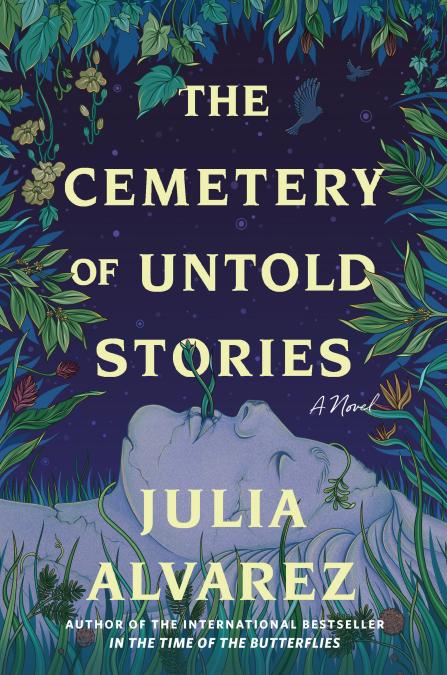Shopping Cart
The Cemetery of Untold Stories
A Novel
Description
Literary icon and great American novelist Julia Alvarez, bestselling author of In the Time of the Butterflies and How the García Girls Lost Their Accents, returns with a luminescent novel about storytelling that reads like an instant classic.
“Only an alchemist as wise and sure as Alvarez could swirl the elements of folklore and the flavor of magical realism around her modern prose and make it all sing . . . Lively, joyous . . . often witty, occasionally somber and elegiac.” —Luis Alberto Urrea, The New York Times Book Review
“Engaging and written in a playful, crystal-clear prose, this novel explores friendship, love, sisterhood, living between cultures, and how people can be haunted by the things they don’t finish . . . Entertaining . . . Heartwarming.” —Gabino Iglesias, The Boston Globe
**Named a Most Anticipated Book by the New York Times, Washington Post, Today.com, Goodreads, B&N Reads, Literary Hub, HipLatina, BookPage, BBC.com, Zibby Mag, and more**
Alma Cruz, the celebrated writer at the heart of The Cemetery of Untold Stories, doesn’t want to end up like her friend, a novelist who fought so long and hard to finish a book that it threatened her sanity. So when Alma inherits a small plot of land in the Dominican Republic, her homeland, she has the beautiful idea of turning it into a place to bury her untold stories—literally. She creates a graveyard for the manuscript drafts and the characters whose lives she tried and failed to bring to life and who still haunt her.
Alma wants her characters to rest in peace. But they have other ideas and soon begin to defy their author: they talk back to her and talk to one another behind her back, rewriting and revising themselves. Filomena, a local woman hired as the groundskeeper, becomes a sympathetic listener to the secret tales unspooled by Alma’s characters. Among them, Bienvenida, dictator Rafael Trujillo’s abandoned wife who was erased from the official history, and Manuel Cruz, a doctor who fought in the Dominican underground and escaped to the United States.
The Cemetery of Untold Stories asks: Whose stories get to be told, and whose buried? Finally, Alma finds the meaning she and her characters yearn for in the everlasting vitality of stories. Julia Alvarez reminds us that the stories of our lives are never truly finished, even at the end.

A Letter from
Julia Alvarez
Dear Reader,
I’m *excited* (equal parts joy and dread─scratch that─unequal parts dread and joy) to be sharing my new novel with all of you. The Cemetery of Untold Stories is about a writer who is closing down her writing life.
What to do with all the stories she hasn’t had the talent, courage, imagination, or time to tell? When she inherits a plot of land next to the town dump in her homeland of the Dominican Republic, she decides to create a cemetery and bury her boxes of unfinished drafts, thereby returning her stories to the place she and they came from.
But not so fast. Stories have a mind of their own. They will not be silenced. Her characters rise up to tell their true and secret stories. The inhabitants of the surrounding barrio join in with theirs. Before we know it we are in the thick of storytelling land with no end in sight . . .
There’s a saying often quoted by protestors: “They tried to bury us; they did not know we were seeds.“ Well, the novel’s version of that is “She tried to bury us; she did not know we were stories.”
The Cemetery of Untold Stories is an exploration of storytelling, who owns the stories, who gets to tell them, what happens to silenced stories and histories. As I grow older, I’m interested in portrayals of older female protagonists, who aren’t just background for center-stage ingenues and young female leads.
Eduardo Galeano, the Latin American writer, once remarked that scientists are wrong when they say we are made of atoms. Really, we are made up of stories. As Alma, the writer in my novel, and her characters, and you will find out, stories never die. They wait in silence to be told. May this novel inspire you to tell yours.
—Julia Alvarez

